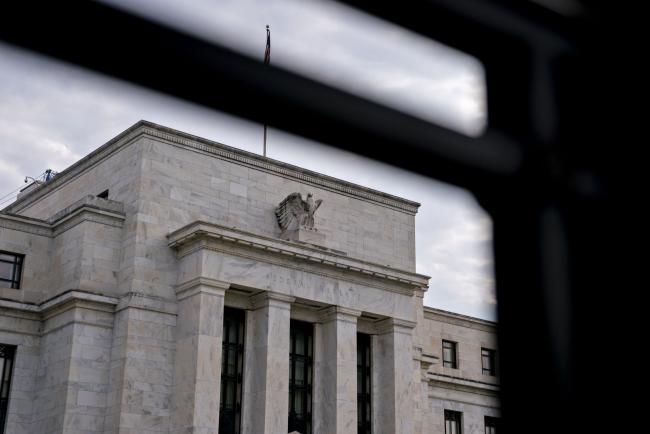(Bloomberg) -- Two crisis-veteran Federal Reserve officials said the central bank has plenty of room for more moves following a flurry of action last week to cushion the economic wallop from coronavirus-related shutdowns, flagging corporate bonds and state and local governments as two areas for potential assistance.
“Everything is on the table” for the Fed as far as additional lending programs, St. Louis Fed President James Bullard, who took office in April 2008, said in a telephone interview Sunday. He warned U.S. unemployment may hit 30% in the second quarter, with an unprecedented drop in gross domestic product that he said could halve to $2.5 trillion during the three-month period.
Neel Kashkari, the Minneapolis Fed president who helped oversee the government’s response to the financial crisis as a Treasury official in 2008, told CBS that “we’re far from out of ammunition.”
Congressional Wrangling
The comments preceded Sunday’s vote by Senate Democrats to block Majority Leader Mitch McConnell’s attempt to advance a coronavirus economic rescue package, putting in question McConnell’s plan for the Senate to pass the bill Monday. U.S. stock futures plummeted as leaders in both chambers failed to reach agreement on how to spend nearly $2 trillion.
The bill already envisions a more expansive role for the Fed. It would authorize the Treasury to use $425 billion “to make loans, loan guarantees, and other investments in support of programs or facilities established by the Board of Governors of the Federal Reserve System for the purpose of providing liquidity to the financial system that supports lending to eligible businesses, states or municipalities.”
Senate Banking Committee Chairman Mike Crapo told Bloomberg News that the legislation would let the Fed lend to, and buy debt from, state and local governments.
“There is more that we can do if necessary” with existing emergency authority, Bullard said. “There is probably much more in the months ahead depending on where Congress wants to go.”
Bullard said the Fed has “unlimited” potential to buy government debt following a commitment to purchase at least $500 billion in Treasuries.
Careful Approach
The Fed could look at buying other corporate debt, as well as some types of municipal debt. At the same time, he said the Fed would need to be careful with such a program, and it could be problematic to pick and choose which debt to buy, just as European authorities have struggled with purchasing sovereign debt.
The St. Louis Fed’s view of the virus-related shutdowns on the economy is more dire than Wall Street. JPMorgan Chase (NYSE:JPM) & Co. expects gross domestic product to shrink at an annualized rate of 14% in the April-June period while Bank of America Corp (NYSE:BAC). and Oxford Economics both see a 12% drop.
Goldman Sachs Group Inc (NYSE:GS). sees a 24% plunge. Morgan Stanley (NYSE:MS) economists said in a report to clients on Sunday that they now expect the economy to shrink a record 30.1% in the second quarter, driving up unemployment to an average of 12.8% over the period.
More Support
The Fed and other bank regulators said in a statement late Sunday that they were encouraging banks to modify loan terms for customers affected by the coronavirus, such as by offering payment deferrals and extensions.
Kashkari said “there is a range of things the Federal Reserve could do” now.
“Some people have suggested that we should be providing more support directly to the corporate bond market -- and I’m sympathetic with those views -- and also the municipal market, making sure that states and cities are able to access the capital markets as well,” he said in an interview on CBS’s “60 Minutes,” recorded Thursday and aired Sunday evening.
Kashkari said the key lessons from the 2008 experience were that policy makers “should all be erring on the side of overreacting to try to avoid the worst economic outcomes,” which means going big with the relief package and not worrying about how targeted the measures are.
©2020 Bloomberg L.P.
